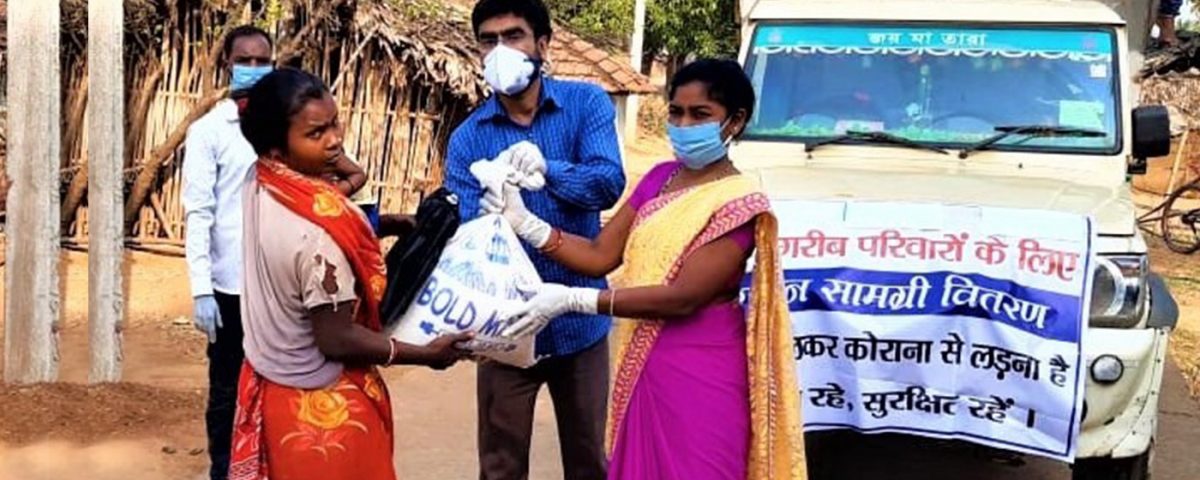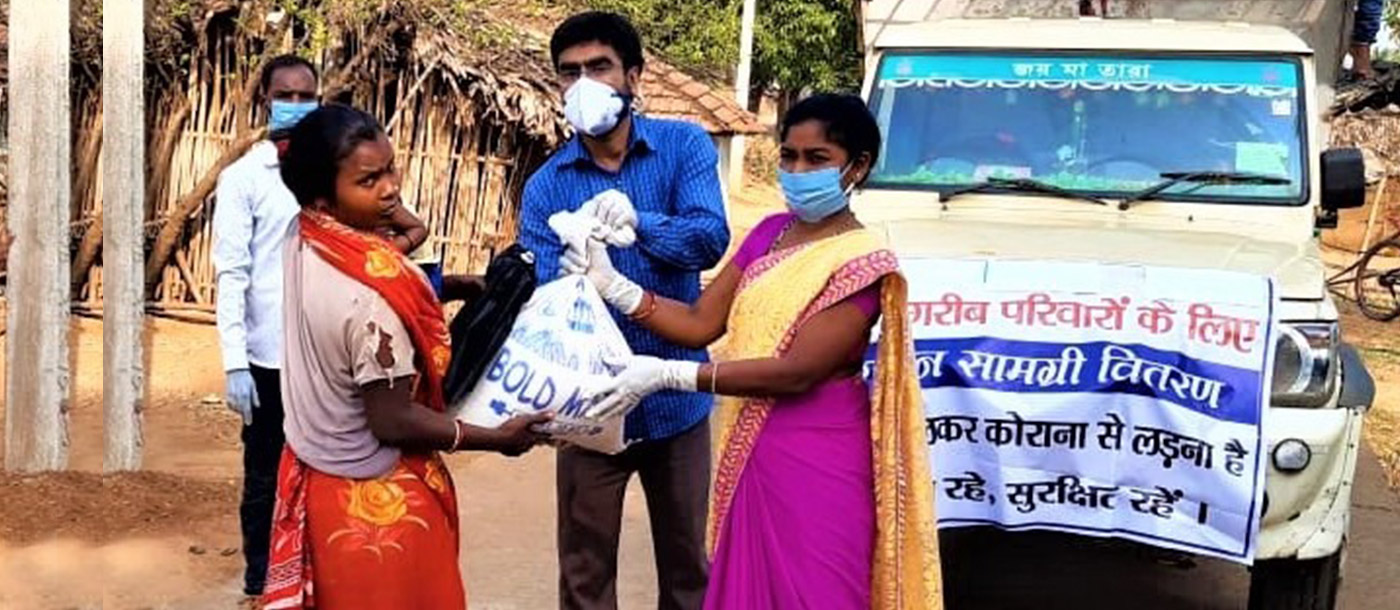PRADAN’s Response to COVID-19 Crisis


PRADAN is working with the administration to support marginalised and vulnerable rural poor people in containing the spread of COVID-19. We are reaching out to marginalised and vulnerable poor farmers across 166 blocks in the states of Jharkhand, Bihar, West Bengal, Odisha, Chhattisgarh, Madhya Pradesh, and Rajasthan, 60 of these blocks in Jharkhand through our partner CSOs. Azim Premji Philanthropic Initiatives is our partner in this initiative.
Why is it necessary to focus on the rural?
The indeterminate spread of the Coronavirus and the subsequent national lockdown to contain the COVID-19 has disproportionately hurt marginalized communities due to loss of livelihood and lack of food, shelter, health, and other basic needs. Due to the lockdown, villages and villagers have come to a standstill, struggling to carry out even essential work for living, in addition to facing the challenges of maintaining physical distancing and cleanliness norms. Loss of employment, income and wage earning opportunities is adversely affecting their financial and physical well-being. The ultra-poor families in the villages are the worst affected, becoming almost invisible due to the social isolation, and the government’s focus shifting to the pandemic.
Our response
There are multiple pathways to intervene at the grassroots. We have adopted eight broad strategies. “Partnering” is a key element of our strategy and we are forming coalitions with multiple partners, especially the state government and local administration, as we engage. Our action is primarily to complement the state efforts. The broad areas of our engagement with the marginalised rural communities and the returning migrant population are:
- Awareness Generation: Developing IEC materials and organizing awareness sessions (mostly through ICT based solutions) about what is COVID-19 & Do’s-Don’ts to be followed to safeguard from infection and transmission.
- Surveillance & Enumeration: It is of critical importance, and also the biggest challenge, to isolate the migrant population from the rest of the villagers to avoid transmission. We are working with SHG members and Anganwadi Sahiyas to ensure that the immigrants and people with symptoms are screened and sent to quarantines.
- Quarantine homes and mobile-kitchen: Along with SHG led federations and Panchayats, we are working to convert Anganwadi centres, Panchayat buildings and school buildings into quarantine/isolation centres for the migrant workers who are coming back to their villages.
- Protection kits for volunteers and staff: Masks and other safety equipments are not easily available in rural areas. We are supplying masks, gloves, sanitizers and soaps for last mile workers, administrative staff, and villagers.
- Attending to the vulnerable: Several people who are alone, or handicapped, or aged – often need special assistance. Due to this lockdown they are not getting anyone to look after them. On the other hand, women are facing increased domestic violence. Through the SHG leaders, we are reaching out to them and are taking precautionary measures to safeguard women and take care of the more vulnerable people.
- Assessing the situation and ensuring better access to Government entitlements: PRADAN team with the help of Community Change Vectors is making the community aware of the relief provisions and services ensured by the government and help them access those entitlements.
- Local travel Support: There are several challenges for pregnant women or patients with serious illnesses. They may require hospitalization or medical assistance at any time, but due to lack of transportation facilities commuting has become impossible. With support from the administration, transportation facilities are being provided for their hospitalization/institutional delivery.
- Engaging with Government and other stakeholders: We are approaching the administration to understand their needs and gauge the emerging gaps in the last mile service delivery. We are collaborating with them to help bridge the gaps so that the line departments and the communities do not suffer due to shortage of safety equipment and/or ration supply.
Rebooting the rural economy once the immediate crisis is over is also one of the major points of interventions through this partnership. Due to lack of employment opportunities from farming systems, the ultra-poor’s livelihoods will be at risk.
Kharif planning may not be possible as well with minimum or no cash in their hands. There is apprehension of a famine, even as late as next year, if this year the monsoon fails. Understanding these upcoming challenges, we need to be prepared to protect livelihood opportunities of such communities. Through this partnership, some of our initiatives addressing the upcoming needs of rural livelihoods would be the following:
- Providing seeds and fertilisers to all small and marginal framers; cash for tiding over working capital and food shortage; helping them access farm machines for quicker land preparation
- Identification of returning migrants and contacting them for MGNREGA job card preparation and Start-up Village Entrepreneurship Programme (SVEP) for works that suit their skill sets
- Strengthening livestock and forest based livelihoods; ensuring implementation of the Forest Rights Act
- Accessing other livelihoods and income generation schemes as announced by the government.

